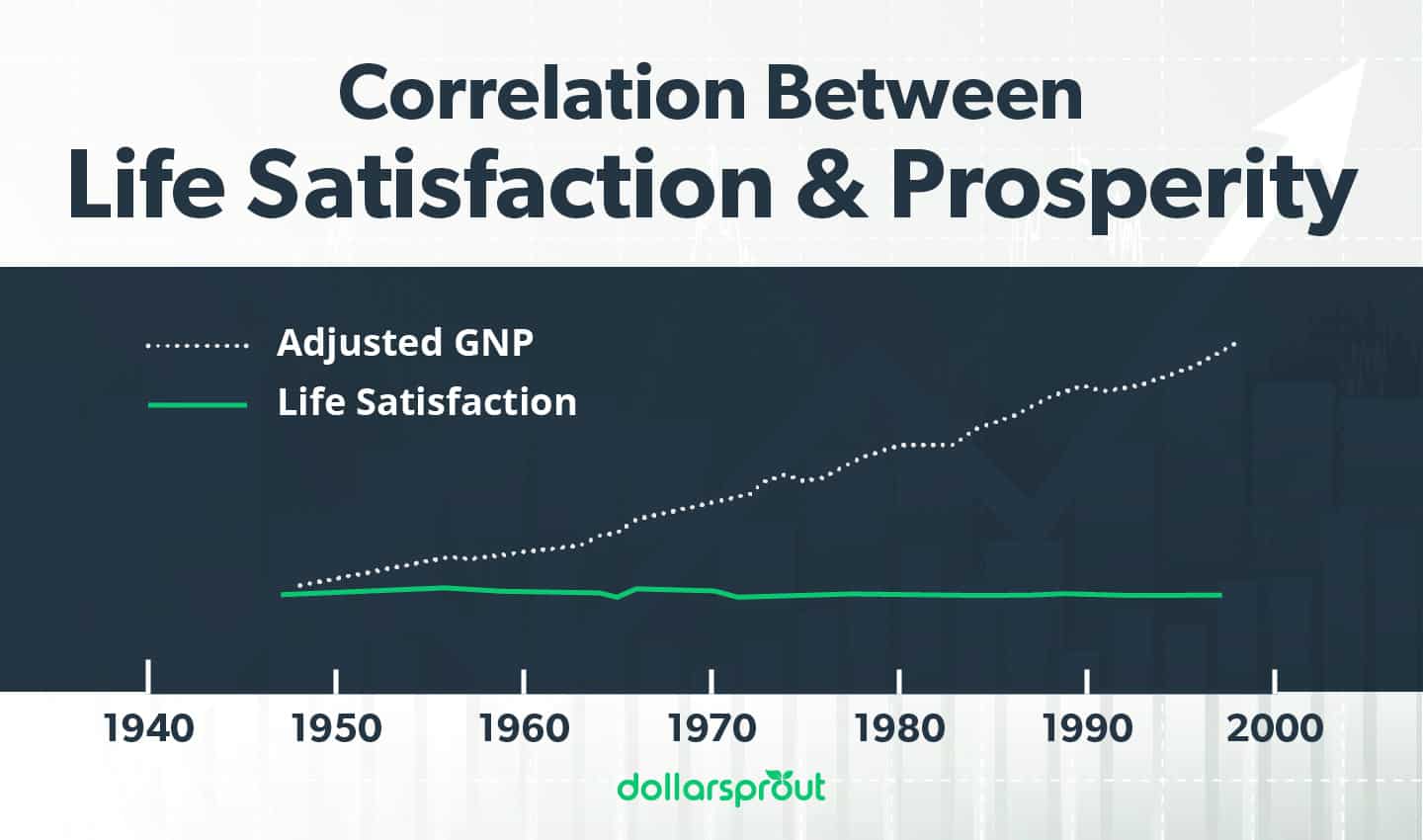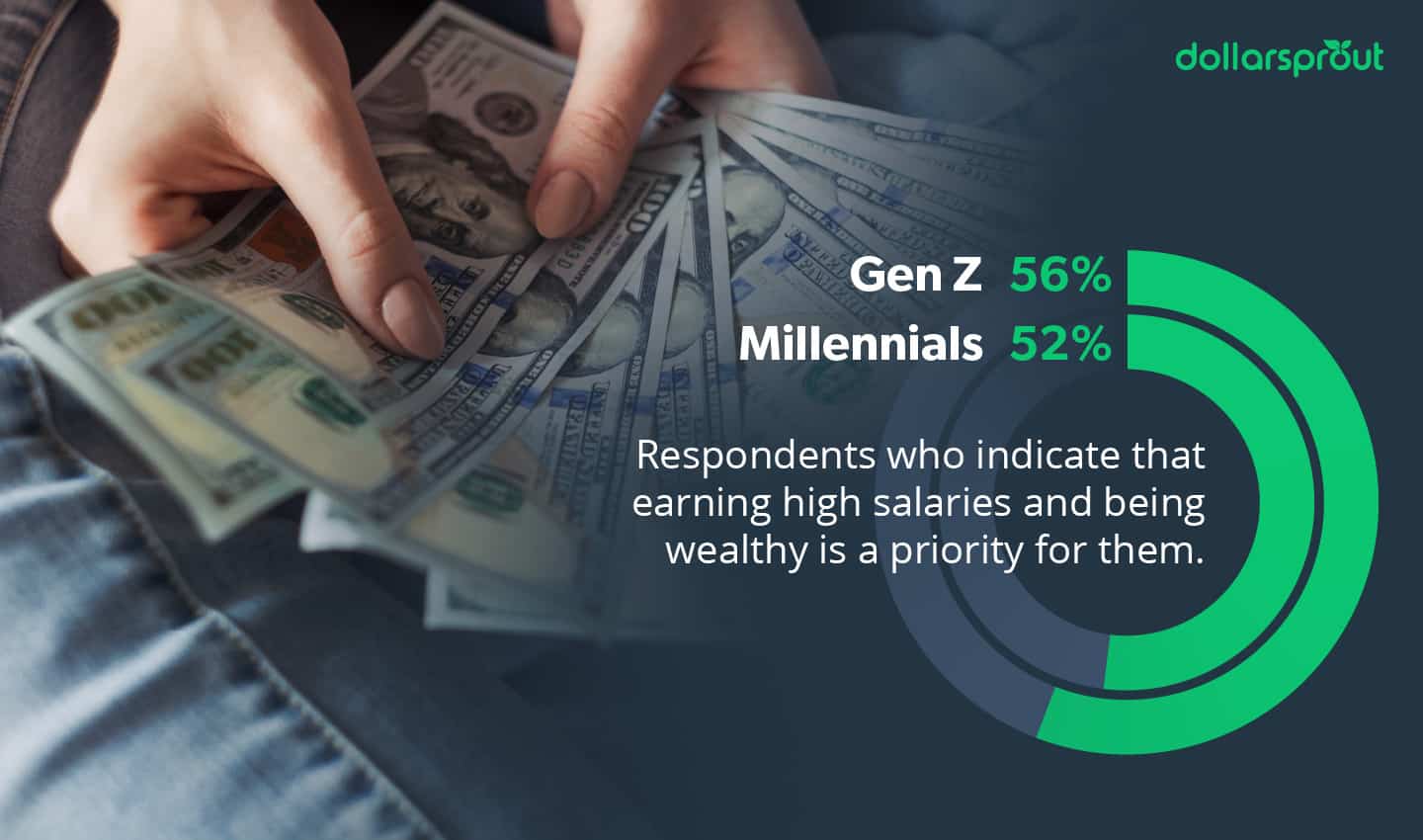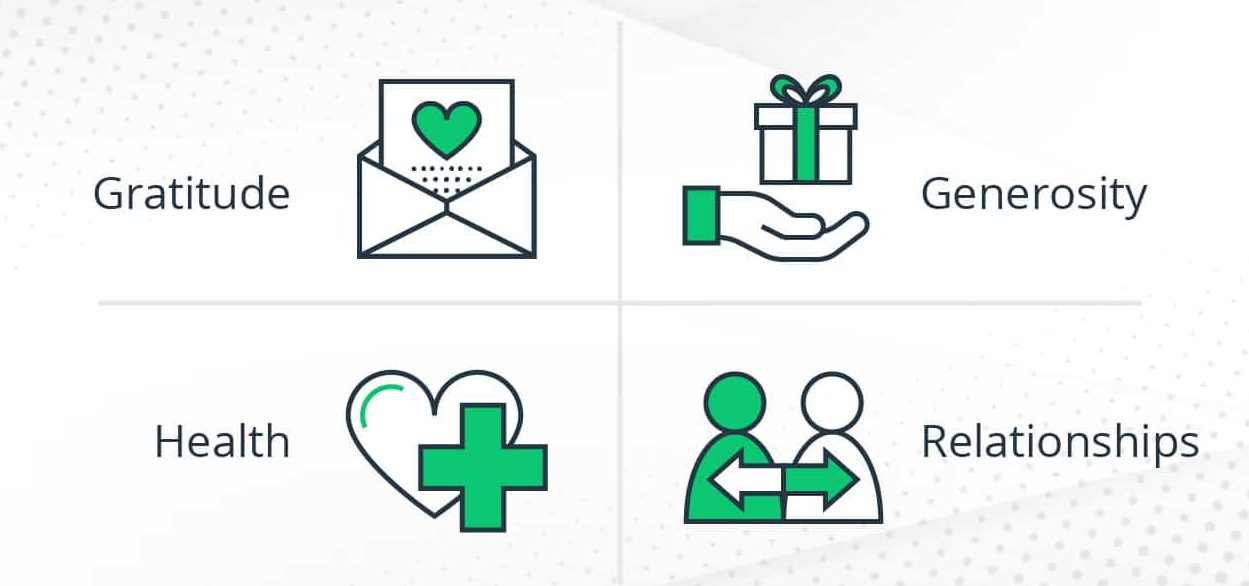Money Can’t Buy Happiness – But, How It’s Spent Still Matters
Our readers always come first
The content on DollarSprout includes links to our advertising partners. When you read our content and click on one of our partners’ links, and then decide to complete an offer — whether it’s downloading an app, opening an account, or some other action — we may earn a commission from that advertiser, at no extra cost to you.
Our ultimate goal is to educate and inform, not lure you into signing up for certain offers. Compensation from our partners may impact what products we cover and where they appear on the site, but does not have any impact on the objectivity of our reviews or advice.
Can money buy happiness? Not exactly — but how you spend it might. While chasing a higher income alone rarely leads to lasting fulfillment, research shows that money can boost happiness when it’s used with intention — especially on things like time, experiences, and generosity.

Our mission at DollarSprout is to help readers improve their financial lives, and we regularly partner with companies that share that same vision. If a purchase or signup is made through one of our Partners’ links, we may receive compensation for the referral. Learn more here.
When my husband and I were spending every extra penny of income to pay off our student loans, I assumed the financial freedom that came with being debt-free would allow me to be happier.
I would dream of starting a family, buying a home, and taking trips to places I never thought I could afford. Because even though we had enough money to pay our bills every month and make extra payments toward our student loans, I still felt broke no matter how much our income increased.
We finally paid off our debt, bought a house, and started our family. And while I’m a lot less stressed now, if I’m honest, I’m no happier now than I was then. I love my life, my friends, and my husband, but life isn’t the carefree dream I imagined back then.
In the last few years, I’ve watched others come to the same realization.
Personal finance experts who I admire have opened up about their struggles with depression and anxiety. And I’ve witnessed several couples end their marriages after paying off debt and building wealth together.
Making money has become the new currency of happiness. But money for the sake of having more still doesn’t produce the type of happiness that leads to long-term fulfillment.
The Link Between Money and Happiness
Since World War II, there’s been a dramatic increase in real income (income after taxes and inflation). But even with more prosperity in the workplace, life satisfaction in the United States has been virtually flat.[1] And it’s not just in the U.S. A similar pattern can be seen in the data from other developed nations.
To an extent, money can buy happiness. Daniel Kahneman and Angus Deaton’s famous 2010 study on income and wellbeing showed that more money increases life satisfaction. However, there’s no further progress to our emotional wellbeing beyond an annual household income of about $75,000 (~$108,000 adjusted for inflation in 2025).[2]
Yet movements like FIRE (financial independence, retire early) and entrepreneurs that promise to help you 10x or 100x your business income are everywhere. They sell the dream that if you make more money, you can reach more people, change more lives, and become a better person in the process.
Licensed clinical counselor Joseph Tropper sees this often in his practice. “People who do side hustles and rush into opportunities that maximize their time and energy are validated by the extra income they earn while compromising physical and mental wellbeing,” Tropper said.

Professionals agree that as long as our basic needs are met, more money doesn’t make a person happier. So why do we still think it will? And more importantly, if we don’t make a lot of money, how do we use what we have to increase our happiness?
What Money Can’t Buy
Thankfully, dozens of scientific studies have identified key components of long-term happiness. Keeping these ideas in the back of your mind can help you make better decisions with how you spend your money and time.
Relationships
Think about your wedding day, the birth of your child, or reuniting with friends or family you haven’t seen in a while. For most of us, our happiest days aren’t the days we spent making big purchases or going on shopping sprees. Our happiest memories are the ones that include other people.
Dr. Edward Diener, also known as Dr. Happiness, has studied happiness for decades, trying to isolate and replicate the factors that happy people have in common. In his research, he’s found one factor that’s overshadowed all others in creating happiness: quality relationships.[3]
He discovered that factors like education, IQ, and age have little impact on individuals’ happiness and that after a certain income, happiness leveled out. But those with strong ties to family and friends showed the highest levels of happiness and fewest signs of depression.
Diener says that to improve happiness, we should focus on improving social skills, nurturing close relationships, and cultivating social support.
Additionally, a 2017 study from the American Psychological Association found that higher-income earners exhibit more self-oriented feelings of pride and contentment while lower-income earners exhibited more others-oriented feelings like compassion and love.[4]
Money allows us independence and self-sufficiency, but a special bond is created when you receive or give support to those around you. As a result, higher-income earners were less likely to report feeling “sad” but no more likely to report feeling “happy” than their lower-income counterparts.
Related: All-Star Cheer Costs a Fortune, but I Pay for It Anyway. Here’s Why
Generosity
Recent studies show generosity not only increases happiness, it begets more generosity.
It might sound contradictory to say money can’t buy generosity, but the amount of money you give doesn’t necessarily equate to more happiness. Giving for tax benefits or a recurring donation you don’t think about won’t make you happier. Your generosity must be intentional.
A study published in Nature Communications looked at the neural link between generosity and happiness.[5] Researchers found that people who made intentional generous decisions engaged the parts of the brain that are directly related to changes in happiness while those who didn’t saw less engagement.
Yet people still fail to realize how powerful the link is between generosity and happiness. When asked what would make them happiest, most of the same study participants still thought spending money on themselves would make them happier than spending it on someone else.
Health
Health is one of the most important predictors of happiness. When you’re healthy, active, and energetic, you can fully experience the things that bring you joy. You don’t have to be the perfect picture of health to be happy. In fact, science shows the opposite is true.
A George Mason University study found that people with serious health conditions, including cancer, could score just as highly as healthy individuals in happiness tests as long as their condition didn’t impact their day-to-day actions.[6] Cancer patients who were in remission tended to show higher than average levels of happiness.
The stress of overworking can have dramatic effects on our wellbeing. Sometimes the best thing we can do for our health isn’t to spend money on it. If you feel work is impeding with your health, reevaluate how much money you need to make and consider working less or lowering your expenses so you can afford to live on a smaller salary.
Related: When Is It Okay to Take a Pay Cut for a New Job?
Gratitude
Gratitude helps people feel more positive emotions, relish good experiences, deal with adversity, and build stronger relationships.
In one study, psychologists Robert Emmon and Michael E. McCulloughs found that after 10 weeks, subjects who wrote down things they were grateful for every day were more optimistic and felt better about their lives than those who wrote down things that irritated them.[7]
Gratitude doesn’t just increase happiness, it also improves physical health and raises energy levels. You can benefit from both at any income level. You don’t need to be a higher-income earner to express gratitude for the people and experiences in your life.
How to Use Money to Improve Your Happiness
Money may not be able to buy happiness, but it can support your happiness if you spend it on the right things.
Invest in experiences.
Research suggests that creating experiences brings more happiness to your life than filling it with things. Making memories, learning new skills, seeing beautiful places, and meeting interesting people are just some of the experiences that can make your life happier.
In fact, experiences don’t just offer enjoyment while they’re happening. The anticipation of an experience can bring as much joy as the experience itself.[8] That means you don’t have to spend money on new events every weekend. Planning an outing or small adventure in advance can offer the same effect.
Spend money on things you value.
You don’t have to stop buying things to be happy. You should buy stuff, even nice things, just in moderation. When you view purchases as rewards or treats, they can cause higher happiness levels than impulse or habitual purchases.
If you make enough to live comfortably, instead of putting in more hours at work to afford a luxurious lifestyle, try shifting your focus to control your spending. Buying less can help you discover what you truly value in life and increase your income without any extra hours in the office.
Related: I Stopped Spending Money for 30 Days. Here’s What Happened
Buy back your time.
Some seasons in life are busier than others. Raising young children, starting a business, and the holidays are notorious for stressing otherwise content individuals. If you have commitments requiring a majority of your time, don’t waste what little you have left with menial tasks.
Buying back your time by paying for a housekeeper, sending your laundry out, or hiring out small business tasks can give you more room in your schedule for things that bring you joy.
Be generous and giving when you can.

A Harvard study found buying things for other people makes you happier than spending money on yourself.[9] You don’t need to spend a lot; as little as $5 was enough to improve happiness levels in participants. That’s a coffee for a friend or $5 for the homeless person outside your car.
So even if you’re not the best gift-giver, you’re still improving your day and someone else’s. Spending $5 a day on someone else adds up to about $1,800 over the course of a year. Take a look at your spending and see how you can fit giving into your budget.
Prioritize the Things That Bring You Joy and Fulfillment
Tropper says the social pressure to be successful is a huge factor in why people continue to work and save even after they reached a salary that can meet their needs.

“The burden of achieving success, especially among millennials, is apparent in the way they compare themselves against peers who self-aggrandize on social media,” Tropper said. “Hustling may be a short-term solution, but it feeds our need to prove to ourselves that we are capable of achieving our goals if we stretch our efforts a bit more.”
Being ambitious is a great quality that can produce financial security and allow you to enjoy things that make you happy. But don’t get so caught up in advancing your career and earning money that you miss out on the reasons you wanted to make money in the first place.
Make your family, your relationships, and your passions in life a priority. And don’t let the desire for more get in the way of true happiness.









